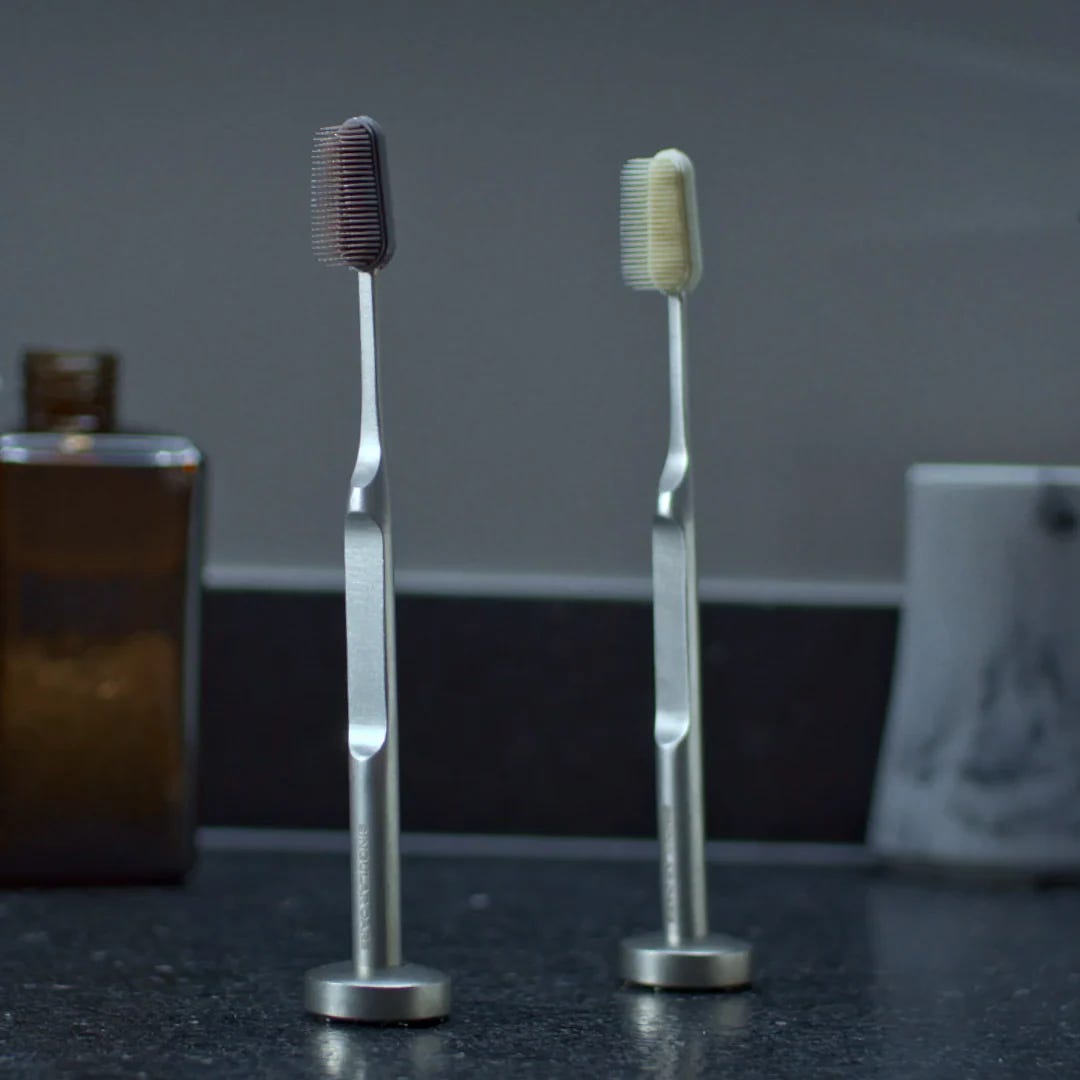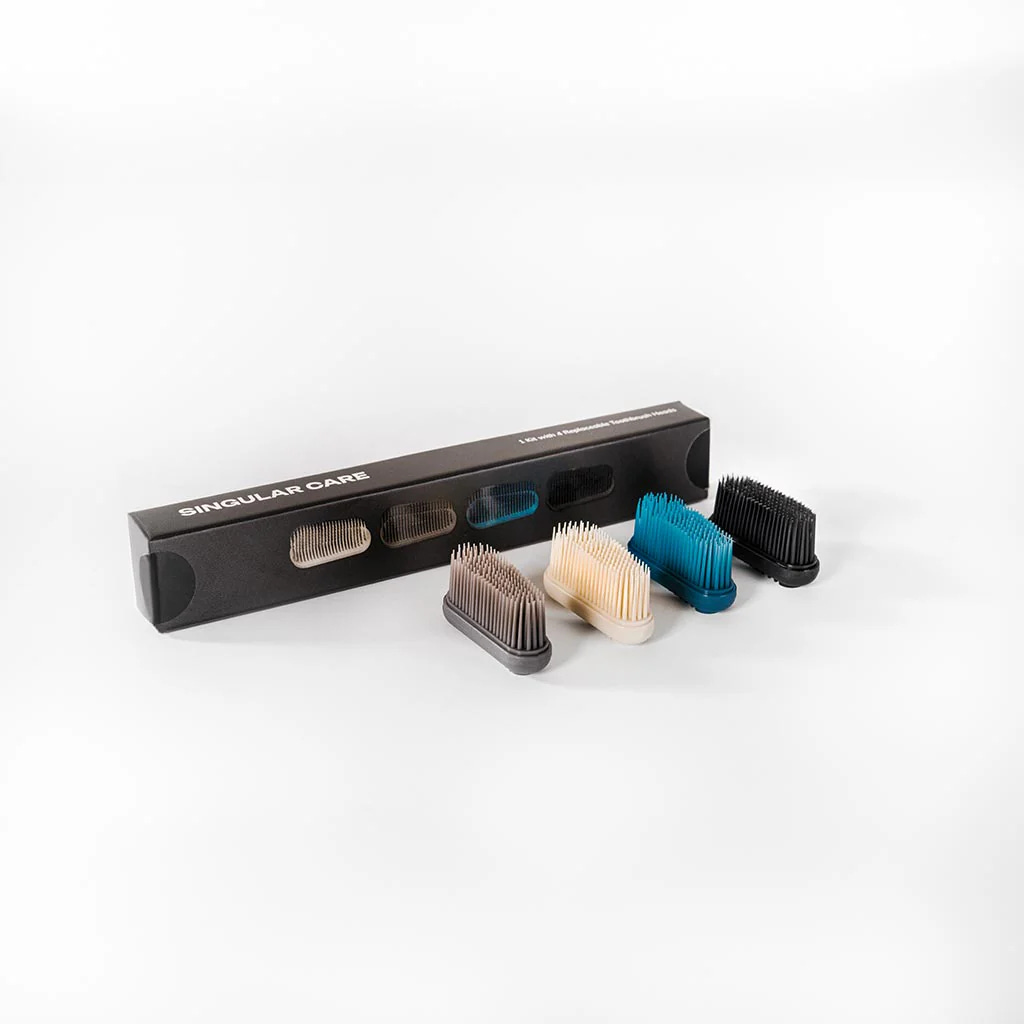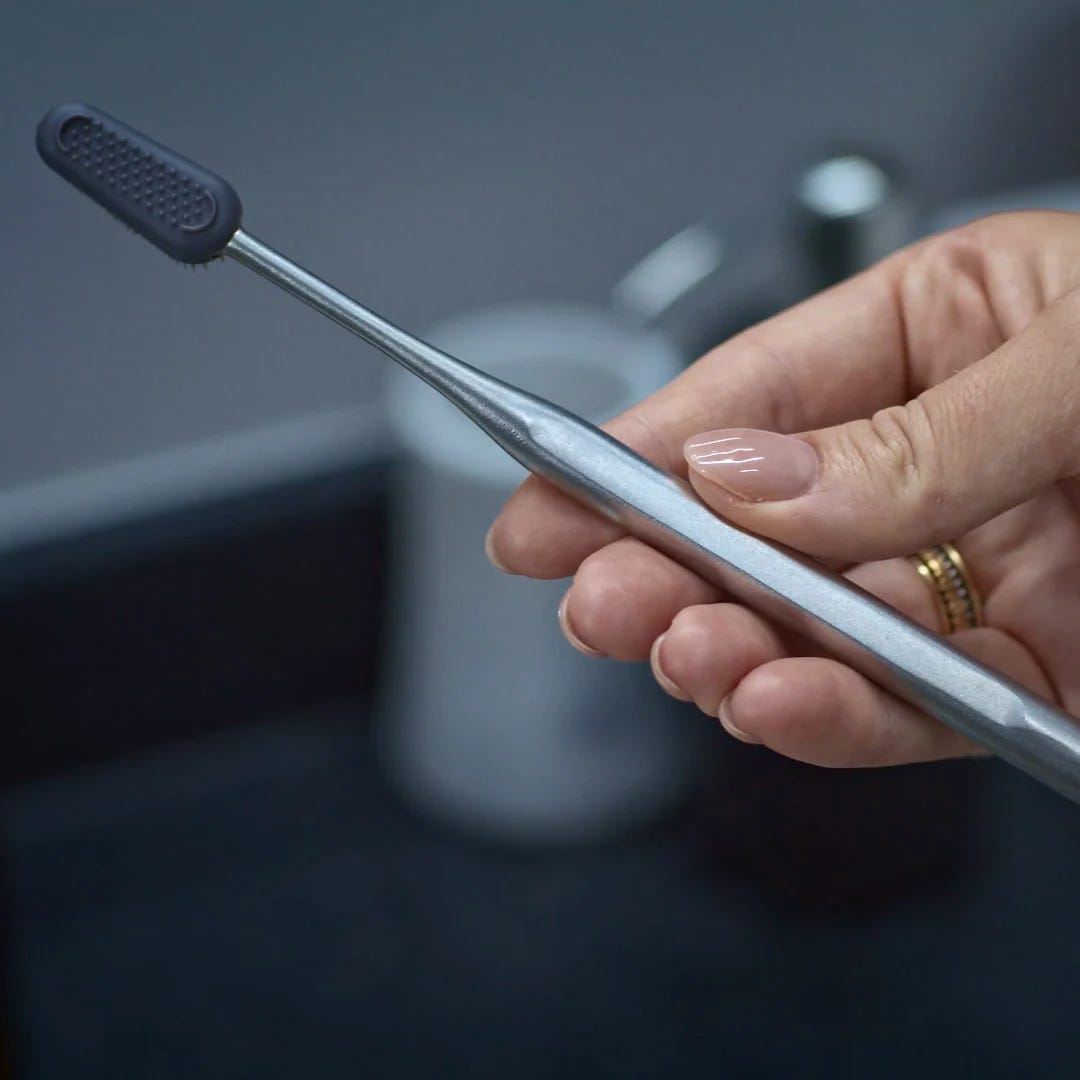How Singular Care made me break up with my electric toothbrush
A design-forward toothbrush that makes sustainability feel elevated.
I partner with venture firms to discover emerging DTC brands, but I only write about the ones that truly stand out — no sponsorships, no paid placements, just products that meet the bar for design, substance, and staying power.
I didn’t think a manual toothbrush could outshine my $200 Sonicare until Singular Care landed on my radar.
The brand came up through a venture network, and I had the chance to try it firsthand. Each kit included a toothbrush with a matching base, replacement heads and floss. The packaging felt intentional in the way great hotels are — simple, design-forward, quietly premium. If Ace Hotel had a bathroom amenity line, this toothbrush would be in it.
I get introduced to a lot of brands that promise to reinvent something ordinary. Most disappear into the blur of beige packaging and “better-for-you” copy. But Singular Care stood out because it didn’t lead with claims; it led with craft. It looked like something Dieter Rams might have designed if he’d obsessed over bristles instead of buttons (that is, eliminating them).
For nearly two decades, I’ve been loyal to electric toothbrushes. I equated the buzz and timer with “better.” But the first time I brushed with the Singular Care toothbrush, I noticed how much cleaner my teeth felt — smoother, somehow more polished. There’s something satisfying about slowing down and actually feeling the brush do its work.
I’m two months into my Singular Care journey and I don’t see myself ever going back to any other toothbrush — electric or manual.
The design itself makes it easy to keep out on the counter, something most toothbrushes can’t pull off. It’s the first toothbrush I’ve owned that actually looks right sitting out, not like an afterthought. Electric brushes might stand on their own, but they’re still an eyesore; and the alternative, a mug or holder, never feels intentional. Singular Care somehow makes even the most utilitarian object feel like part of the room. Even the back of the brush head doubles as a tongue scraper, a small but thoughtful addition that makes the design feel complete.
Developed with dental experts, the toothbrush has a medical-grade stainless-steel handle with a lifetime warranty and food-grade TPU heads that are 100 percent recyclable. The heads are meant to be replaced every three months, reducing more than 82 percent of the plastic waste created by traditional toothbrushes. It’s a small but meaningful shift toward sustainability — thoughtful design that also does better by the planet.
Rams famously outlined his Ten Principles of Good Design, and Singular Care quietly checks nearly every box. It’s innovative in its materials, useful in its ergonomics, aesthetic in its form. It’s understandable and unobtrusive. It’s honest in its simplicity, long-lasting by design, and environmentally responsible in its build. Even the packaging feels intentional, down to the tactile pull of the lid. It’s a shining example of Rams’ philosophy.
What fascinates me is how familiar this playbook is becoming across categories. Oral care, once purely functional, is being reimagined by design-minded founders who treat the bathroom like an extension of personal style. We’ve already seen it in hand soap, cookware and deodorant. The pattern is clear: the new luxury isn’t about excess; it’s about editing. Products that strip away noise until only quality, aesthetics and conscience remain.
Singular Care sits right in that pocket. It’s design-minded, functional and genuinely sustainable, much like Salt & Stone, which elevated everyday skincare, and Caraway, which made cookware covetable again. It’s part of a quiet revolution of brands transforming the mundane into something you want to display.
From an investor lens, this “low-tech luxury” movement is compelling. Consumers are gravitating toward tactile, analog products that elevate simple rituals rather than overcomplicate them. It’s the countertrend to our connected world, where pleasure comes from weight, texture and silence instead of notifications. The Singular Care toothbrush embodies that shift.
What I love most is that Singular Care doesn’t feel performative. It’s not trying to guilt you into sustainability; it earns your adoption through design. That’s the next evolution of conscious consumption, when the responsible choice happens to be the one that looks and feels best.
It’s also proof that design can drive behavioral change. I’ve brushed longer since switching, not because an app told me to, but because the brush itself makes the act feel intentional. That’s a lesson more brands could learn: the best habit-forming technology might not involve a chip at all.
Singular Care isn’t just making oral-care products; it’s reimagining what sustainable oral care can look and feel like. It’s utility with taste, minimalism that feels human.
If this is where oral care is heading, I’m all in.
Independent insights on emerging brands worth your attention.




